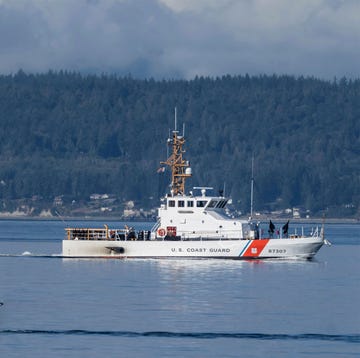Alta Journal is pleased to present the final installment of a six-part series by writer Diane Factor. Visit altaonline.com/serials to read the entire series.
When most people think of Los Angeles, they imagine it as a city largely devoted to entertainment. But Los Angeles County remains a major manufacturing hub and is home to the largest port in the United States. After World War II, heavy industries grew phenomenally—as did the risks to workers. By 1970, a campaign to protect workers on the job, in lockstep with the civil rights and environmental movements, had led to the passage of landmark federal laws including the Occupational Safety and Health Act. In 1973, California created the Division of Occupational Safety and Health—Cal/OSHA—a once robust and nationally recognized agency dedicated to protecting workers.
For this Alta Serial, Factor looks back at her time as a Cal/OSHA inspector in the 1980s. A native Angelena, Factor was introduced through this job to the people who risked their lives to keep Los Angeles running, union organizers who sought better deals for workers, and the managers and owners of industrial operations who just wanted to keep the machines moving and the profits rolling in.
In part five, Factor left California to go work for the AFL-CIO. But in 2023, she returned to the site of the Hugo Neu-Proler plant to see what had changed in 40 years.
The salty air is tainted by the odor of rancid oil, burnt metal, and dust, a familiar smell in the harbor. The federal penitentiary sits quietly. The monument to the Japanese fishing village seems insignificant, surrounded by shuttered seafood warehouses.
You can spot the odd heron or coyote lurking among the mountains of heaped metal, and the port cranes still stand like sculptures against the skyline. The lineup of waiting trucks on New Dock Street is twice as long as I remember and appears twice as tall compared with my tiny Chevy Bolt.
I can no longer see the drivers. I pull into a parking space by the entrance, facing a big sign that reads “SA Recycling.” I hear the Prolerizer and turnings crusher grinding away, now sheathed in white corrugated metal. A uniformed guard runs out to shoo me off private property, waving and shouting that I must vacate immediately.
I don’t have a search warrant.
Thinking back on my 1980s Cal/OSHA days gives me an excuse to hunt down Luisa Gratz. It is not difficult to find her.
Gratz, 40 years later, is still the president of Local 26, and she returns my call the same day. Her voice is unmistakable, and she is as sharp as ever.
She’s happy to hear from me, and to report that SA Recycling management is “not hateful, racist, and arrogant.” In 2007, Hugo Neu-Proler sold the Terminal Island facility to Sims Metal, an Australian corporation. Sims partnered with an Orange County scrap-metal business started by George Adams Sr. in the 1970s to create Sims/Adams, or SA Recycling. George Adams Jr. and his family run the ferrous and nonferrous operation, which has expanded to 130 facilities, mostly in the South and Midwest. Gratz calls SA “enlightened,” at least compared with Hugo Neu-Proler. SA complies with OSHA and EPA rules, respects the workforce, and doesn’t outsource maintenance.
New union contracts have greatly improved wages and medical and sick leave benefits. The company’s Terminal Island manager participates as an employer trustee in the union’s pension fund. I ask about the turnings crusher lead operator, Antonio Saldaña. Many from our generation are now gone—old age, apparently not owing to high incidences of cancer from conditions they were exposed to. I remind Gratz of her striking appearance at the Cal/OSHA appeal hearings and suggest that she probably would not recognize me now with my long gray hair. She laughs. Her dark curls, she tells me, are now bright red.•
This completes our six-part serialization of “Fighting for Safe Jobs,” by Diane Factor. Kindly drop us a note and let us know if you enjoyed this piece. Sign up for more Alta Serials here.
Diane Factor is the founding director of the Worker Education and Resource Center (WERC). She retired in 2020 after 21 years of service. WERC is a non-profit labor-management partnership with the Service Employees International Union Local 721. Factor was a consultant for the County of Los Angeles from 1999 to 2004 and a program manager at the University of California, Los Angeles Labor Occupational Safety and Health Program from 1991 to 1999. Factor was an industrial hygienist at AFL-CIO from 1987 to 1991 and an industrial hygiene compliance officer at the California Division of Occupational Safety and Health from 1982 to 1987.













